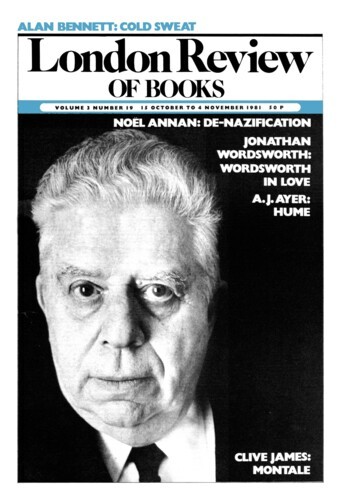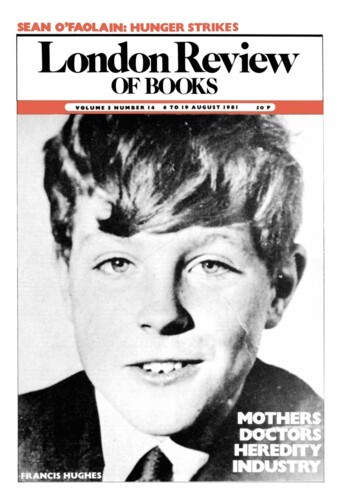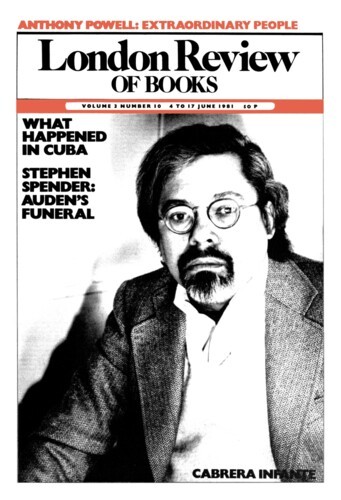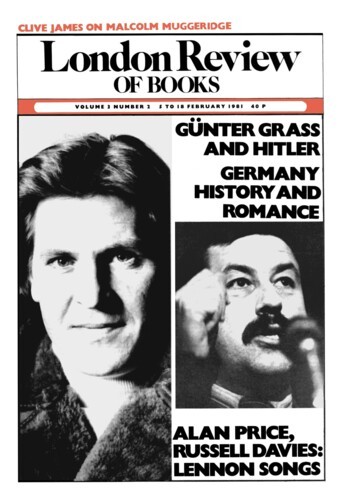National Institutions
Hans Keller, 15 October 1981
Its last chapter apart – an irrelevant ‘After-thought’ whose autobiographical explosion inextricably interweaves deep historical insights with a strong composer’s inevitable prejudices – Robert Simpson’s impersonal challenge is spotlessly objective, sternly factual and, at the same time, unashamedly ethical. His scrupulous analysis of the Proms’ past yields a practical proposal as well as what already seems to have proved an indisputable moral message – both substantiated by comprehensive, complex statistics, yet each glaringly simple in substance.




